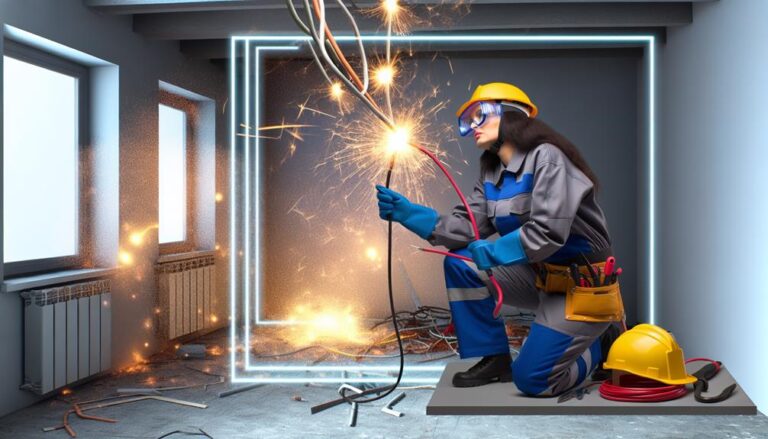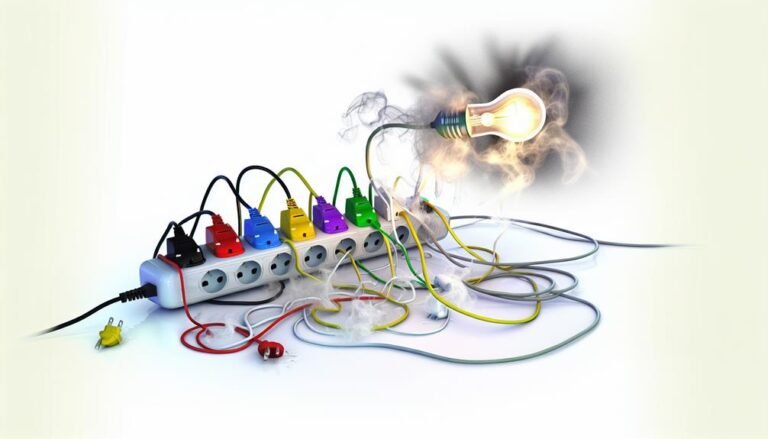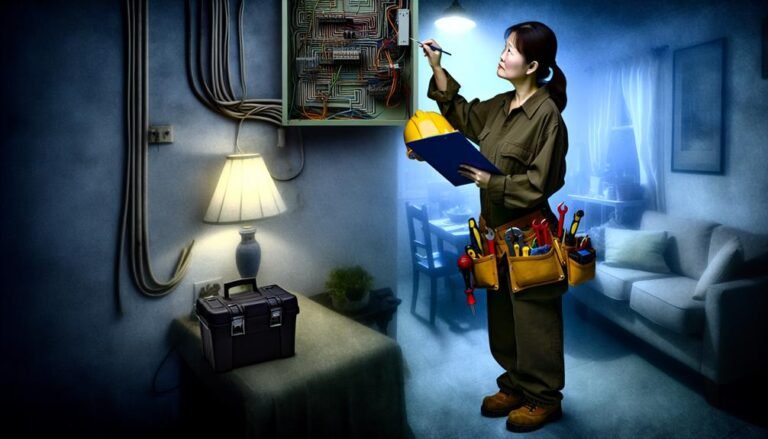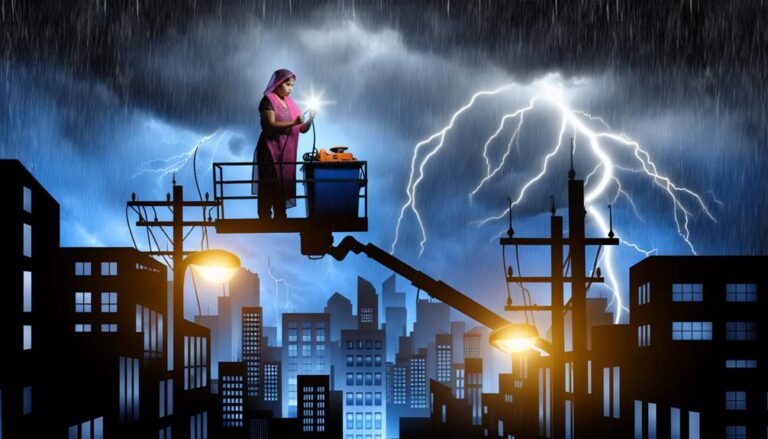Training and Skills Required for Emergency Electricians
Did you know that electrical malfunctions are one of the leading causes of house fires? With such a significant risk at hand, it is crucial to have well-trained professionals who can handle emergency situations efficiently and effectively.
But what does it take to become an emergency electrician? In this discussion, we will explore the training and skills required to tackle urgent electrical issues, from the education and certifications needed to the technical expertise and problem-solving abilities that make these professionals indispensable.
So, if you’ve ever wondered what it takes to be an emergency electrician, buckle up, because we’re about to shed some light on this electrifying topic.
Key Takeaways
- Education and training programs in electrical studies provide the necessary knowledge and skills for emergency electricians.
- Essential certifications such as Electrical Safety Certification, First Aid and CPR Certification, Electrical Code Certification, and Emergency Response Certification are important for establishing credibility and ensuring proficiency in handling emergencies.
- Emergency electricians need to have technical skills and knowledge in electrical systems, troubleshooting, repairs, and installations.
- Problem-solving abilities, including analytical thinking, adaptability, creativity, and critical evaluation, are crucial for effectively handling emergencies as an electrician.
Education and Training Programs
Education and training programs play a crucial role in equipping you with the skills and knowledge needed to become an emergency electrician. These programs provide a structured and comprehensive learning experience that covers the essential aspects of electrical systems, safety regulations, troubleshooting techniques, and emergency response procedures.
To start your journey towards becoming an emergency electrician, you can enroll in technical schools or community colleges that offer specialized programs in electrical studies. These programs typically include classroom lectures and hands-on training, allowing you to gain a solid understanding of electrical theory and practical skills. Additionally, some institutions may offer apprenticeship programs, where you can work alongside experienced electricians to learn the trade firsthand.
Throughout your education and training, you’ll learn about various electrical components and systems, including wiring, circuits, motors, and generators. You’ll also be taught how to interpret electrical diagrams, use testing equipment to diagnose faults, and perform repairs and installations in a safe and efficient manner.
Moreover, education and training programs focus on developing your problem-solving abilities and decision-making skills. They expose you to real-life scenarios and simulate emergency situations, allowing you to practice your skills and learn how to handle high-pressure situations with confidence.
Essential Certifications
To become a certified emergency electrician, you must obtain essential certifications that demonstrate your expertise and competence in the field. These certifications are crucial for establishing your credibility and ensuring that you possess the necessary skills to handle emergency electrical situations. Here are four essential certifications that you should consider obtaining:
- Electrical Safety Certification: This certification verifies your knowledge of electrical safety regulations and procedures. It ensures that you can identify potential hazards and take appropriate precautions to prevent accidents.
- First Aid and CPR Certification: As an emergency electrician, you may encounter situations where immediate medical assistance is required. Having a valid First Aid and CPR certification equips you with the skills to provide basic life-saving measures until professional help arrives.
- Electrical Code Certification: This certification demonstrates your understanding of the electrical codes and standards that govern electrical installations and repairs. It ensures that you can adhere to the regulations and maintain a high level of safety and compliance.
- Emergency Response Certification: Obtaining an emergency response certification equips you with the knowledge and skills to effectively respond to various emergency situations. It includes training in assessing risks, implementing emergency plans, and coordinating with other emergency responders.
Technical Skills and Knowledge
As an emergency electrician with essential certifications, you must possess a range of technical skills and knowledge to effectively handle and troubleshoot electrical issues in emergency situations. Your expertise in these areas will enable you to quickly identify and resolve problems, ensuring the safety of both yourself and others.
To give you a better understanding of the technical skills and knowledge required, here is a breakdown:
| Technical Skills | Knowledge |
|---|---|
| Proficient in electrical systems and their components | Understanding of electrical codes and regulations |
| Ability to read and interpret electrical blueprints and diagrams | Knowledge of different types of electrical equipment and their functions |
| Skilled in using testing equipment and tools | Familiarity with safety procedures and protocols |
| Competent in electrical troubleshooting and problem-solving | Awareness of potential hazards and risks |
| Proficiency in electrical repairs and installations | Familiarity with emergency response protocols |
These skills and knowledge are crucial for an emergency electrician to quickly assess the situation, make informed decisions, and implement effective solutions. By having a strong foundation in these areas, you will be well-equipped to handle any electrical emergency that comes your way.
Problem-Solving Abilities
Developing strong problem-solving abilities is crucial for an emergency electrician to effectively handle and resolve electrical issues in emergency situations. As an emergency electrician, you must possess the skills and knowledge to quickly identify problems and come up with effective solutions. Here are four key aspects of problem-solving abilities that are essential for your role:
- Analytical Thinking: You must have the ability to analyze complex electrical systems and identify the root cause of any issues. This involves breaking down problems into smaller components and using logical reasoning to find the best course of action.
- Adaptability: Emergency situations require you to think on your feet and make quick decisions. You should be able to adapt to changing circumstances and come up with innovative solutions in high-pressure scenarios.
- Creativity: Sometimes, conventional methods may not be sufficient to solve complex electrical problems. Being creative allows you to think outside the box and find unique solutions to challenging situations.
- Critical Evaluation: It’s important to evaluate the effectiveness of your solutions and make necessary adjustments if required. This involves assessing the outcomes of your actions and continuously improving your problem-solving skills.
Communication and Customer Service Skills
As an emergency electrician, your ability to effectively communicate with customers is crucial for providing quality service. Clear and concise communication ensures that you understand the customer’s problem accurately and that they understand your proposed solutions. Active listening is essential to gather all relevant information and address the customer’s concerns promptly.
Moreover, customer service skills play a vital role in establishing a positive relationship with clients. Being courteous, respectful, and empathetic towards customers is essential to make them feel valued and understood. Promptly responding to their queries and providing updates on the progress of the job helps to build trust and confidence in your abilities.
Furthermore, as an emergency electrician, you must be able to explain technical information in a way that’s easily understood by customers who may not have a technical background. Using clear and simple language helps to avoid confusion and ensures that customers are informed about the work being done and any potential risks involved.
© 2026 By Electrician Phoenix Today







